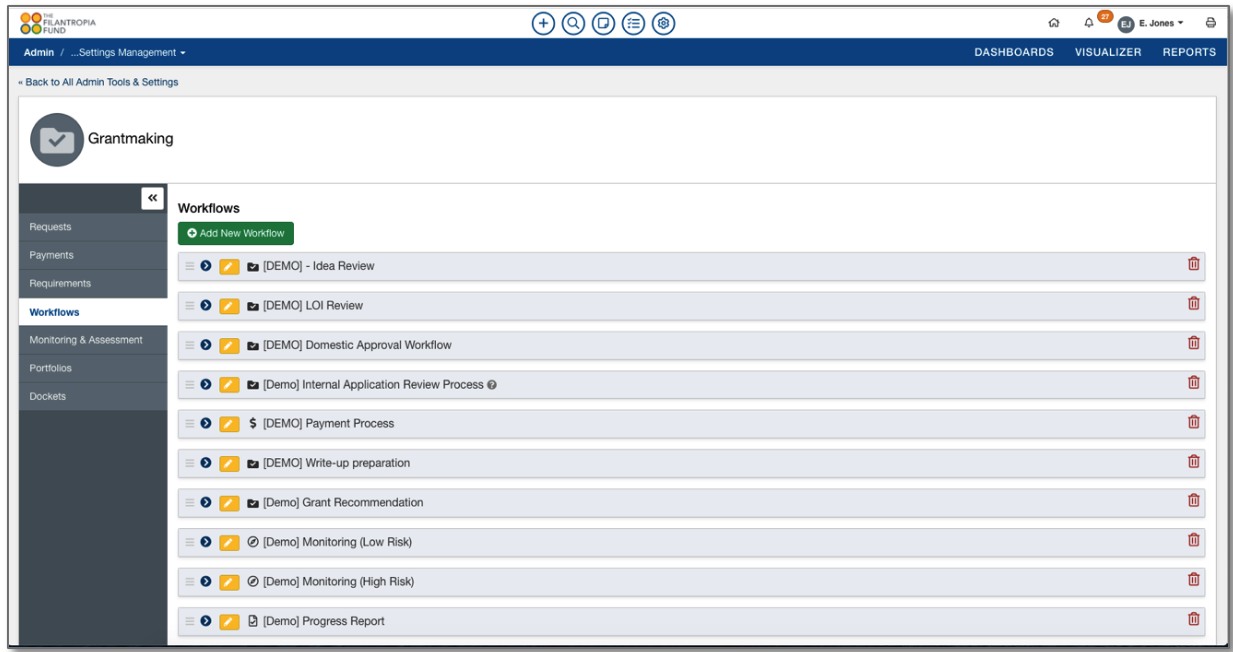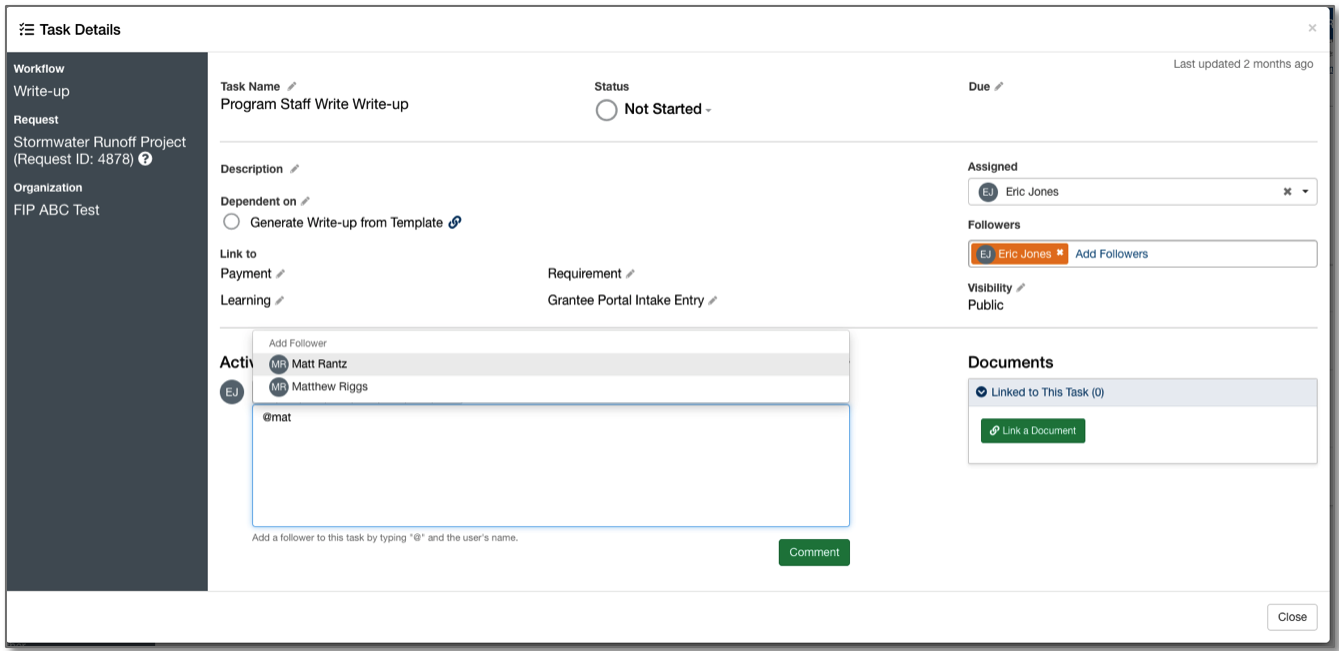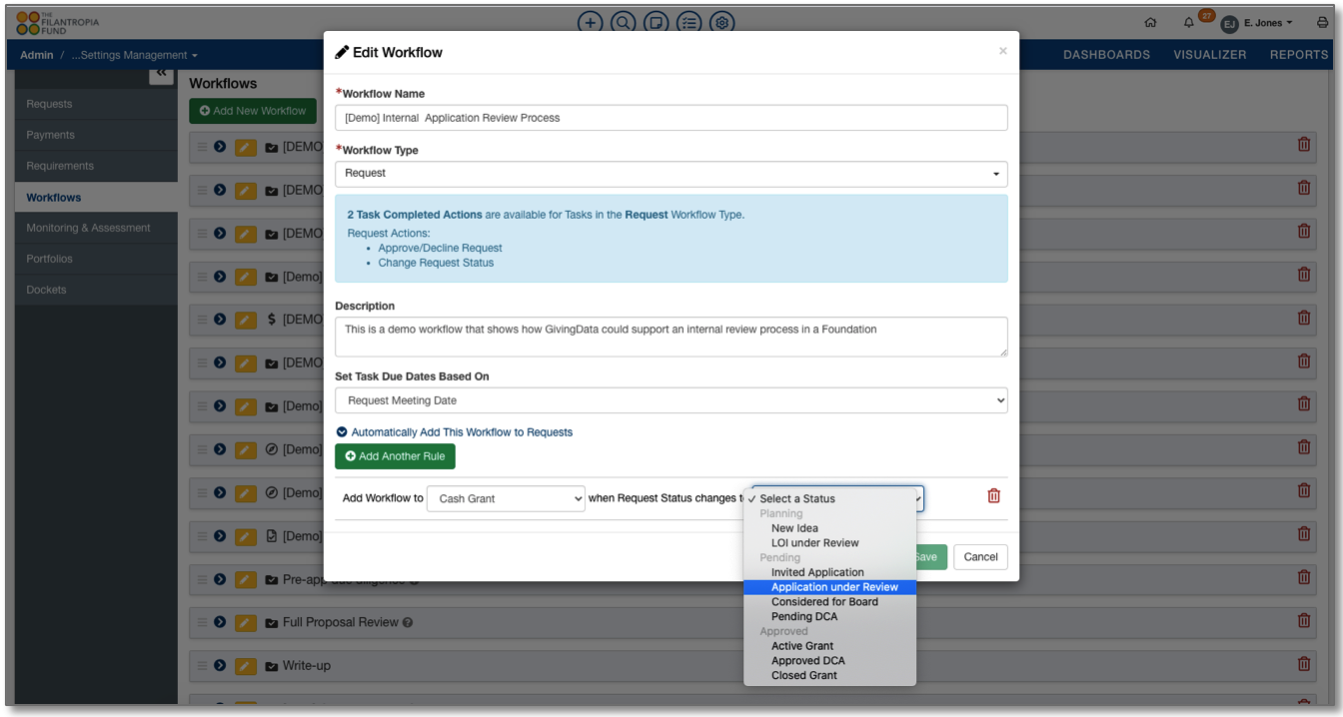
Workflows form the backbone of the grantmaking process. They ensure grant requests are reviewed efficiently and fairly, payments are paid accurately and on-time, and reports are reviewed and evaluated appropriately.
As the onset of COVID-19 necessitated a shift to working from home, foundations quickly realized that many of their grantmaking processes required adjustment. Practices that were routine in an office environment had to morph to account for staff working remotely. Staff collaboration had to change as well. A trip down the hall to get a second set of eyes on a proposal is now handled through emails and instant messages.
Adapting to a changing landscape
To complicate matters, this unprecedented shift to remote collaboration has happened alongside major changes in program priorities, as many funders have moved to invest in programs focused on COVID-19 and racial inequality. Quickly ramping up new grant programs, while keeping the rest of the foundation’s work moving smoothly, has required adapting existing workflows – or creating new ones altogether.
While the disruption has uprooted many longstanding practices, it has opened up the space for grantmakers to think differently about their processes. For many, it’s been a welcome opportunity to reduce friction in their workflows. It’s also revealed the critical importance of investing in systems that are straightforward and easily adaptable.
GivingData’s workflows were designed with agility in mind. They enable funders to standardize operational processes while providing the flexibility to respond to new funding needs.
Responsive and flexible tools
The backbone of GivingData’s workflow feature is its template library. Workflow templates can be created as needed to facilitate requests, payments, requirements, grant amendments and intake forms, such as grant applications and reports. The templates, which consist of a series of tasks, are straightforward to build and easy to configure. Grants managers can quickly add or modify them as needed in response to changing requirements.

Individual tasks within a workflow are packed with functionality. Each one acts as a workspace that provides easy access to the information team members need to efficiently complete the task while facilitating collaboration with colleagues.
For example, tasks can be linked to documents, intake forms, payments, requirements and assessment groups. This allows a user to seamlessly access these entities without leaving the task. Tasks can also be set to trigger changes in request or payment statuses upon their completion, eliminating the need to leave the task in order to move a request forward.
Facilitating collaboration
Workflow tasks also make a great tool for collaboration with staff across the organization. In addition to the task assignee, other team members can be added as followers, either in the template or in the comments section using the @ symbol followed by the users’ name. Want to get feedback on a proposal, simply @ one of your colleagues in the comment section of the task to invite them to view and comment on the proposal.

We have also built flexibility into how workflows are assigned to individual entities, such as requests or payments. Workflows can be added manually, in batch, or automatically in response to a system event, such as a status change or application submission.
Let’s say you want to kick off a grant review process when a request status changes to “In Review.” By assigning rules to the workflow template, a “Grant Review Workflow” can automatically be added to the request when its status changes to “In Review.” This eliminates the need to manually add workflows to requests and simplifies the entire process.

Since there are always exceptions that don’t follow the standard process, individual instances of workflows can be modified (tasks added, removed or reassigned) to create ad-hoc or one-off processes.
For example, a typical grant review process might include staff due diligence and write-up, followed by a program director review and then final board approval. However, when a new request comes in that is a high priority and needs to be fast-tracked, the workflow can be quickly amended. In this case, the program director review could be removed from the workflow and not impact the overall workflow template.
The path forward
Grantmaking foundations are rising to meet the unique challenges of our time by fast- tracking funding, reducing requirements, and supporting new issue areas. Grants management and operations teams are responding as well, building critical infrastructure to allow for new ways of grantmaking.
By adapting existing grantmaking processes, adding new ones and reimagining ways to support their grantees, the critical work of grantmaking is happening faster than ever. If you have success stories you’d like to share, or if there are ways GivingData can further support your efforts, please reach out. Our team is here to help.
Sign up for the GivingData Insights Newsletter
Receive actionable insights to streamline your grantmaking processes straight to your inbox.

